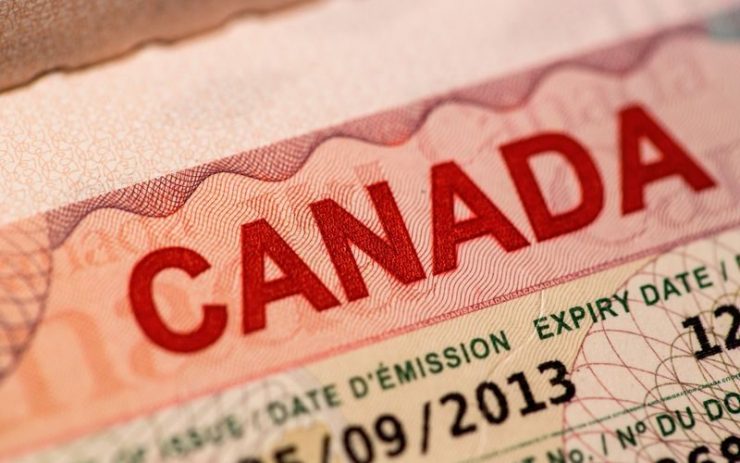How To Apply For A Canadian Visa From Saudi Arabia
Did you know that Canada has never stopped accepting and processing foreign applications for permanent residence, even during the height of the Covid-19 pandemic earlier this year? Since then, Canada has succeeded in firmly controlling the spread of the coronavirus and now allows all foreigners to apply for a Canadian visa from Saudi Arabia and be successful in the country (the only exception being tourist visas).
There are many ways to start a new life in Canada. In fact, Canada has over 100 different immigration and visa options. It’s about finding the best possible route that allows you and your family or loved ones to become permanent residents and not face disappointing setbacks along the way. For example, if you do not have formal qualifications or experience, you might study in Canada and become a permanent resident after a few years, or, if you have a degree and the necessary relevant experience, you might be eligible for becoming a permanent resident in as little as six months.
How to Get a Canadian Visa
Applying for a Canadian visa from Saudi Arabia is a three-step process. Step 1 is to determine which immigration programs you are eligible for, as we mentioned there are over 100! Step number 2 is to apply for a program that is best for you and the third is to go through the process, move to Canada and meet the conditions to obtain your permanent resident status. But as we know, it’s never as easy as three short sentences, so let’s take a look at each of these steps in more detail.
Which Immigration Program Should You Apply To?
Your intentions when you arrive in Canada are the most important. Do you want to find a job or start a business? Studying for a degree or just an extension of what you already have? Based on your age, qualifications, skills, experience, family size, and a few other factors, you will need to choose a Canadian visa program that takes all of these into account and guides you to get one-day Canadian citizenship. It’s important to remember that it’s not easy, but it’s what makes it worth it. After all, if it was, everyone would. Some of the most popular Canadian immigration programs are:
- Express Entry System – the most popular choice, this system creates more permanent residents than any others. Qualified professionals with at least one year of experience working in their profession may be eligible for one of the three programs in the system for different types of professions, namely:
- Skilled Worker Program – for people with experience and qualifications in managerial and professional roles; for example business managers, IT professionals, nurses, architects, and engineers.
- Skilled Trades Program – if you are a qualified journeyman, we have good news for you; trades workers are some of the most in-demand professions in Canada. You will require authentication from a recognized body (such as a red seal) OR a valid job offer in Canada and at least one year of experience working as a tradesman. Popular skills urgently needed in Canada include pipefitters, plumbers, welders, carpenters, electricians, and mechanics.
- Canada Experience Class – if you are a suitable candidate for either of the above two programs, and you already have or it is your intention to first work in Canada for at least a year before applying to become a permanent resident, then this is the best possible route. Experience class applicants are given preference over the other two programs because applicants have already shown that they are capable of integrating into Canadian society.
Advertisements
- Provincial Nomination Program – one of the more complicated but also effective immigration programs for foreigners who know where they want to live in Canada. This program includes all except one of the 13 provinces and territories, resulting in at least 40 to 50 different visa options altogether. Each Canadian province has its own Provincial Nomination Program (PNP), and each of those has its own unique streams or visas for Canadian immigration. For example the British Columbia (BC) Provincial Nomination Program has three options, each with a number of sub-categories;
- Express Entry BC – tied in with the Express Entry System mentioned above, by submitting an application to one of the following programs and being successful, the Government of British Columbia will motivate your permanent residency to the Immigration Refugee Council of Canada (IRCC);
- Skilled worker program
- Healthcare Professional Program
- International Graduate Program
- International Post-graduate Program
- British Columbia PNP Tech Pilot – if you have the skills and expertise to secure a job at one of BC’s tech companies, you will be eligible for permanent residency. Your job offer must be for at least one year.
- Entrepreneur Immigration – regional pilots identify the needs of particular communities and if your business plan meets their requirements, you’re in with a shot. The base category is also available for people who are interested in purchasing an existing business in BC.
- Express Entry BC – tied in with the Express Entry System mentioned above, by submitting an application to one of the following programs and being successful, the Government of British Columbia will motivate your permanent residency to the Immigration Refugee Council of Canada (IRCC);
- This is just one example of one province’s PNP. If you know where you want to live in Canada, you can apply directly to the provincial government. If you are successful in your application you will receive a provincial nomination, which, as long as you meet the eligibility criteria for the program you are applying to, guarantees your permanent residency status in Canada.
- Pilot Programs – the Immigration and Refugee Council of Canada is continuously experimenting with different visa types to meet the needs of the Canadian labor market. For example, we mentioned the BC PNP Tech Pilot above, and there are many more. One of the more diverse and admissible pilots was created when the four provinces of Atlantic Canada; New Brunswick, Newfoundland & Labrador, Nova Scotia, and Prince Edward Island grouped together to address a shortage of both semi-skilled and skilled workers in the region. Actually, they are facing a shortage of people, period. For this reason, the Atlantic Immigration Pilot was created to help address these shortages by engaging the benefits of economic migration to Canada. Applicants with a valid job offer in Atlantic Canada can apply for permanent residency through this special program.
- Two more examples are the Rural & Northern Immigration Pilot, a program that was created to allow smaller cities and communities that aren’t as much of a magnet as saying Toronto or Vancouver for immigrants to attract hard and talented foreign workers. The Agri-food Immigration Pilot allows workers in the food production and agricultural industry to also apply for Canadian visas for permanent residency if they have a valid long-term job offer (non-seasonal).
Applying for Your Canadian Visa
These are just a few of your options. We didn’t even have the benefits of studying in Canada. Once you know which program you want to apply for, you can begin the application process. Each program has its own requirements which vary slightly, but basically, you can expect to have to comply with something like the following:
| Canada Visa Eligibility Requirements | |
|---|---|
| Requirement | Description |
| Experience/Qualification | if you are applying to become a permanent resident, you will typically have to show you are able to perform the duties as laid out in your job offer |
| Education | every program has a minimum requirement of at least a Canadian high school diploma or the equivalent. |
| Proof of funds | if you aren’t already working in Canada, you must show you can pay for your cost to move and settle in Canada |
| Language Requirements | depending on your visa type, you may need to get a minimum score on one of the Canadian Language Benchmark tests |
| Medical Examination | you may be required to have a doctor’s examination to show you don’t have any terminal/life-threatening illnesses. |
| Admissible to Canada | you cannot have a criminal record |









2 Comments